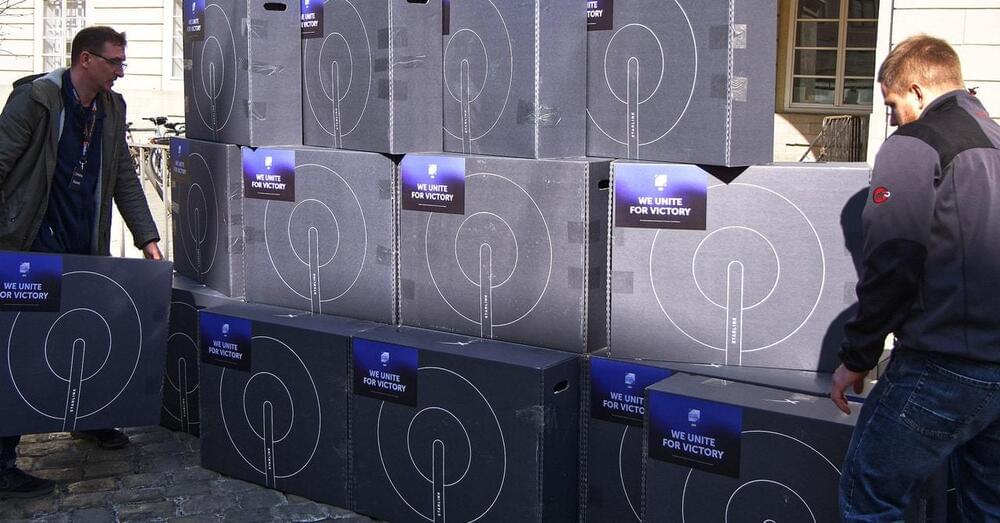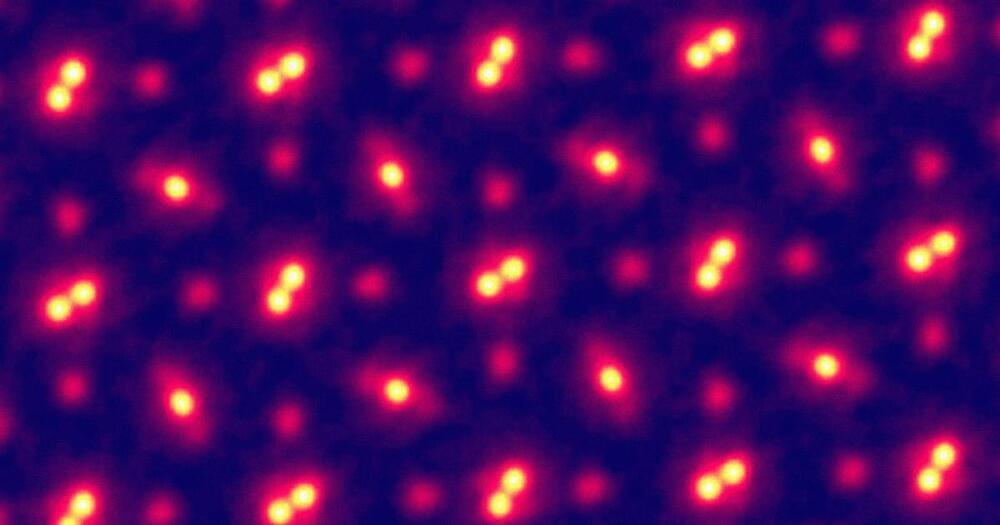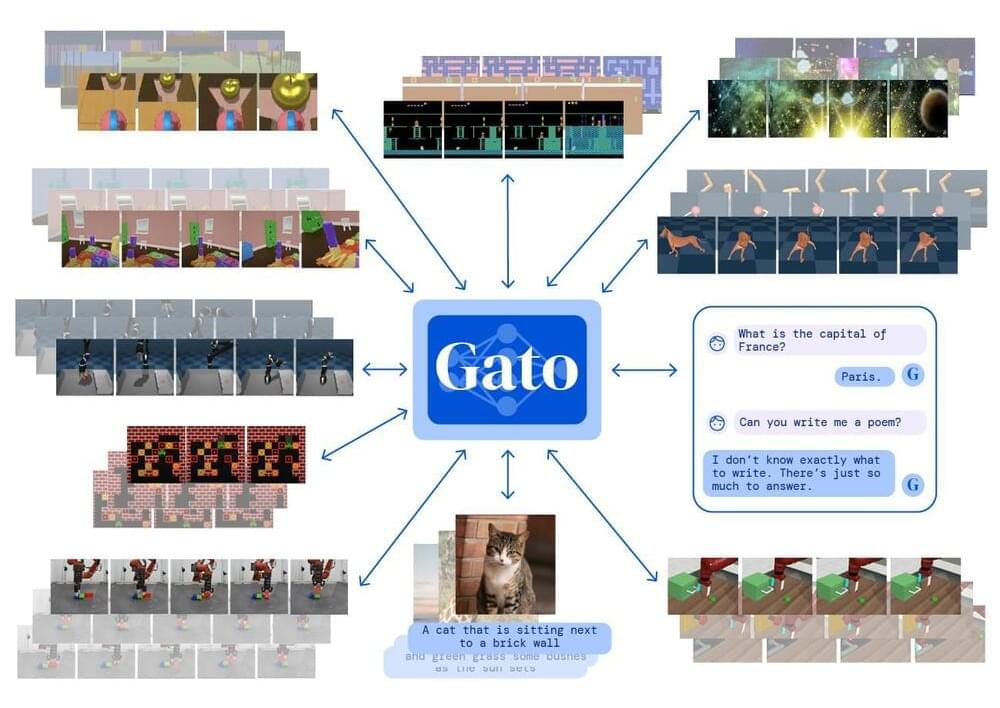Elon Musk’s intervention demonstrates how satellite internet could route around war or censorship far beyond Ukraine.



Logic gates are the fundamental building blocks of computers, and researchers at the University of Rochester have now developed the fastest ones ever created. By zapping graphene and gold with laser pulses, the new logic gates are a million times faster than those in existing computers, demonstrating the viability of “lightwave electronics.”
Logic gates take two inputs, compare them, and then output a signal based on the result. They can, for example, output a 1 if both incoming signals are a 1 or a 0, or if either or neither of them is a 1, among other “rules.” Billions of individual logic gates are crammed into chips to create processors, memory and other electronic components.
More Stories
Project Cambria is coming out Later This year, The Next generation Standalone Mixed Reality Headset.
“This demo was created using Presence Platform, which we built to help developers build mixed reality experiences that blend physical and virtual worlds. The demo, called “The World Beyond,” will be available on App Lab soon. It’s even better with full color passthrough and the other advanced technologies we’re adding to Project Cambria. More details soon.“
Let’s Get into it!
SUPPORT THE CHANNEL smile
► Become a VR Techy Patreon → https://www.patreon.com/TyrielWood.
► Become a Sponsor on YouTube → https://www.youtube.com/channel/UC5rM…
► Get some VR Tech Merch → tyriel-wood.creator-spring.com.
► VRCovers HERE: https://vrcover.com/?itm=274
► VR Rock Prescription lens: www.vr-rock.com (5% discount code: vrtech)
FOLLOW ME ON:
►Twitter → https://twitter.com/Tyrielwood.
►Facebook → https://www.facebook.com/TyrielWoodVR
► Instagram → https://www.instagram.com/tyrielwoodvr.
►Join our Discord → https://discord.gg/nsSjXx4kfj.
A BIG THANKS to my VR Techy Patreons for their support:
Trond Hjerde, Dinesh Punni, Randy Leestma, yu gao, Daniel Nehring II, Alexandre Soares da Silva, Kiyoshi Akita, Tolino Marco, Infligo, VeryEvilShadow.
MUSIC
► My Music from Epidemic Sounds → https://www.epidemicsound.com/referral/kf0ycv.
#Meta #VRHeadset #Cambria.
The ousted staffer said little about Musk’s plans for the company, but he praised his team for the work they did during his seven years at the tech platform.

Researchers at Princeton University have built the world’s smallest mechanically interlocked biological structure, a deceptively simple two-ring chain made from tiny strands of amino acids called peptides.
In a paper published August 23 in Nature Chemistry, the team detailed a library of such structures made in their lab—two interlocked rings, a ring on a dumbbell, a daisy chain and an interlocked double lasso—each around one billionth of a meter in size. The study also demonstrates that some of these structures can toggle between at least two shapes, laying the groundwork for a biomolecular switch.
“We’ve been able to build a bunch of structures that no one’s been able to build before,” said A. James Link, professor of chemical and biological engineering, the study’s principal investigator. “These are the smallest threaded or interlocking structures you can make out of peptides.”

A team of Cornell University engineers developed a new microscopy technique that’s powerful enough to spot an individual atom in three dimensions — and create an image so clear that the only blurriness comes from the movement of that atom itself.
The technique, which according to the study published Thursday in the journal Science relies on an electron microscope coupled with sophisticated 3D reconstruction algorithms, doesn’t just set a new record in atom resolution. The researchers even say this might be as good as microscopy gets.
“This doesn’t just set a new record,” lead author and Cornell engineer David Muller said in a press release. “It’s reached a regime which is effectively going to be an ultimate limit for resolution. We basically can now figure out where the atoms are in a very easy way. This opens up a whole lot of new measurement possibilities of things we’ve wanted to do for a very long time.”


Inspired by progress in large-scale language modelling, we apply a similar approach towards building a single generalist agent beyond the realm of text outputs. The agent, which we refer to as Gato, works as a multi-modal, multi-task, multi-embodiment generalist policy. The same network with the same weights can play Atari, caption images, chat, stack blocks with a real robot arm and much more, deciding based on its context whether to output text, joint torques, button presses, or other tokens.
During the training phase of Gato, data from different tasks and modalities are serialised into a flat sequence of tokens, batched, and processed by a transformer neural network similar to a large language model. The loss is masked so that Gato only predicts action and text targets.
When deploying Gato, a prompt, such as a demonstration, is tokenised, forming the initial sequence. Next, the environment yields the first observation, which is also tokenised and appended to the sequence. Gato samples the action vector autoregressively, one token at a time.

Recent text-to-image generation methods provide a simple yet exciting conversion capability between text and image domains. While these methods have incrementally improved the generated image fidelity and text relevancy, several pivotal gaps remain unanswered, limiting applicability and quality. We propose a novel text-to-image method that addresses these gaps by (i) enabling a simple control mechanism complementary to text in the form of a scene, (ii) introducing elements t… See more.
Recent text-to-image generation methods provide a simple yet exciting.
Conversion capability between text and image domains. While these methods have.
Incrementally improved the generated image fidelity and text relevancy, several.
Pivotal gaps remain unanswered, limiting applicability and quality. We propose.
A novel text-to-image method that addresses these gaps by (i) enabling a simple.

Existing pre-trained models are generally geared towards a particular class of problems. To date, there seems to be still no consensus on what the right architecture and pre-training setup should be. This paper presents a unified framework for pre-training models that are universally effective across datasets and setups. We begin by disentangling architectural archetypes with pre-training objectives — two concepts that are commonly conflated. Next, we present a generalized and unified perspective for self-supervision in NLP and show how different pre-training objectives can be cast as one another and how interpolating between different objectives can be effective. We then propose Mixture-of-Denoisers (MoD), a pre-training objective that combines diverse pre-training paradigms together.